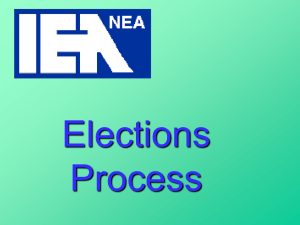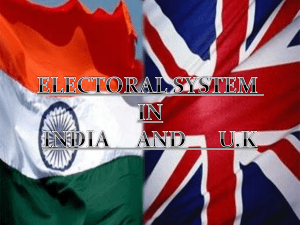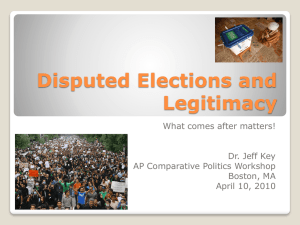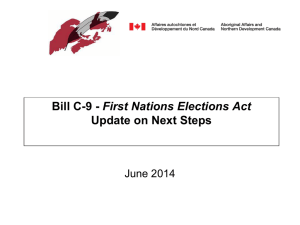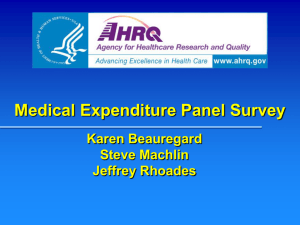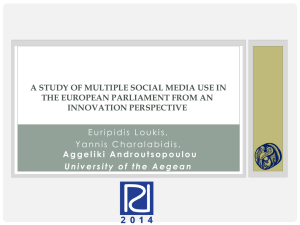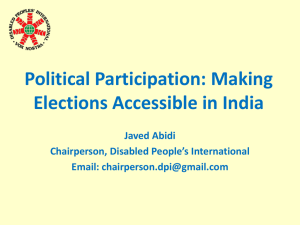22-25 May
advertisement
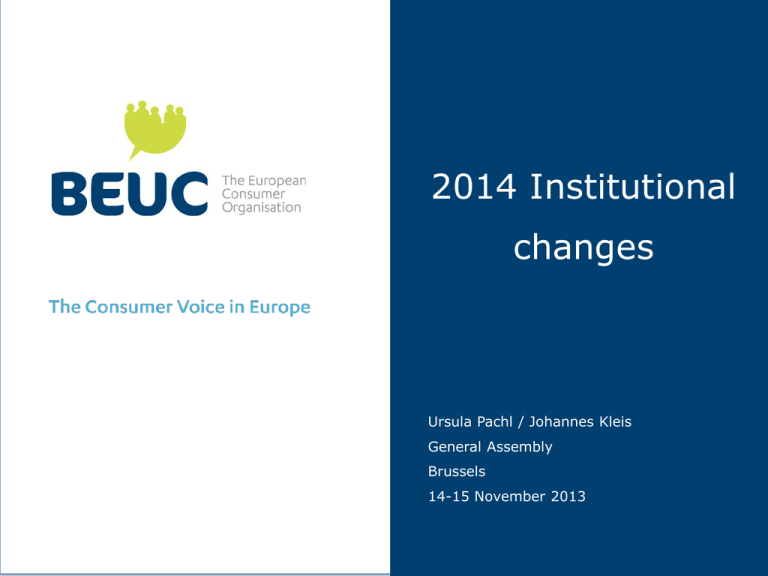
2014 Institutional changes Ursula Pachl / Johannes Kleis General Assembly Brussels 14-15 November 2013 I) Europeanisation of the 2014 elections. Some facts and figures: • 8th direct EP elections. • Election Day: between 22 and 25 May 2014. • Moved from June to May due to election of new Commission President. • The precise day of elections is set by MS - in some cases, this has yet to be done formally for 2014. The official election result: after poll closes in last MS on Sunday 25 May 2014. (Source of the infograph: European Parliament) • Main innovation - Lisbon Treaty: • the EP elects the EC President. • On the basis of a proposal from the European Council. • Taking into account the elections to the EP (Article 17(7) TEU). This will apply for the first time for the 2014 elections. This means: • Winning party’s candidate will be put forward by the European Council. • EP elects this candidate by a majority of MEPs. • BUT: the reality may look different: coalitions ? / compromise candidates etc. March 2013 Commission recommendation: • European political parties should make known their candidate for the Commission presidency. • National parties should make known their affiliation to European political parties. • Election broadcasts should feature the candidate that party is backing for the Commission presidency. New European Parliament 2014-2019 Number of MEPs • Current EP: 766 MEPs (754 + 12 for Croatia which joined in 2013). • After the 2014 elections: reduced to 751 MEPs (Article 14(2) TEU). First plenary will take place in the first week of July 2014 Composition of the new EP • “Anti-European” parties expected to gain 50 – 150 MEPs. • High turn-over rate of MEPs expected: only 1/3 MEPS likely to stay. II) European Commission • 28 new Commissioners and their cabinets. • President of the Commission will be nominated by the Council, then elected by EP • Re-structuring of General Directorates? • How will consumer protection policy and - law be structured ? ( now split between DG SANCO and DG JUST) Institutional timeline in 2014 source of infograph: Burson Marsteller Key points in timeline 2014 22-25 May: European Parliament elections XX June: new MEPS meet 26-27 June: European Council nominates Commission President 01-03 July: First Plenary Session 14-17 July: Plenary session -> election of Commission President August: Commission President selects team with national leaders 22 September to 01 October: EP hearings of Commissioners designate 20-23 October: EP Plenary session – approval of new European Commission 01 November: European Commisison takes office 01 December: New President of the European Council takes office Election manifesto: Timeline • December 2012: Communications expert meeting • January 2013: Application EC grant • May 2013: Decision EC & discussion executive on approach • July/August 2013: Member survey key issues • September 2013: Executive meeting & discussion approach • October 2013: Information to executive about topics & structure Election manifesto: Structure 1. Consumer policy in Europe – setting the scene – – Short analysis past 5 years BEUC Vision: Single Market = partial reality 2. Consumer priorities for EP legislature – – – – – 4 priorities with focus on flagship campaigns Financial services: Deliver products & services consumers really need Consumer rights: Consumers deserve durable goods Digital rights: Online discrimination Food: Trust your meat 3. TTIP – Our yardstick, Transparency, Investor-State 4. Sustainability 5. Where should the consumer stand in 2019 Election manifesto: Actions • Text to members => begin December • Publication by BEUC => March • Presentation to key MEP => March – May • EP election debate => before or after elections • Bug push to new MEPS => July 4/8/2015 14 www.beuc.eu – consumers@beuc.eu
